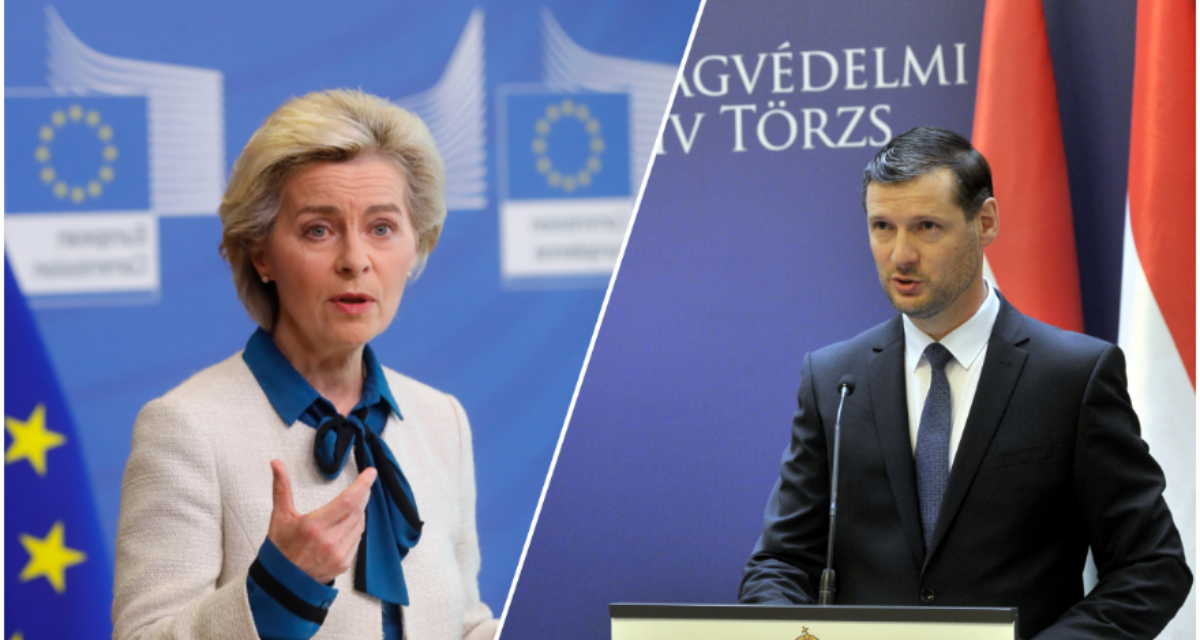Some domestic and foreign political actors have been saying for years that they are stealing a large part of the EU and Hungarian funds intended for public spending, while public procurement is permeated by corruption. According to the President of the Public Procurement Authority, most of the criticism leveled against domestic procedures can be refuted, and as an example he mentioned a recent survey, which was mentioned a lot in the left-wing media, and according to the authority, its starting point is no longer real.
Most of the much-voiced criticism of the Hungarian public procurement system in Hungary and in the EU can be refuted. the president of the Public Procurement Authority told the Hungarian Nation . The report of the European Commission states that there is nothing more transparent in the Union than Hungarian public procurement. The actors speaking on the topic usually do not talk about professional issues, do not look behind the processes, but accept unprofessional statements. László Kovács does not consider it a coincidence that the authors of the damning and serious allegations never questioned them. According to the report of the European Commission, all relevant information is public with us, the number and proportion of missing data is exactly zero according to the commission. In such circumstances, it is impossible to talk about a lack of transparency.
"Don't get me wrong, I think there can be corruption in the system, just like in other countries. The task is therefore clear. Corrupt actors must be caught in the act, and the Public Procurement Authority is also trying to participate in this with its tools." - emphasized László Kovács.
Are the big businessmen close to the government in trouble?
Last year, there were roughly 7,900 successful public procurement procedures in this country, worth approximately HUF 4,600 billion. The detailed data clearly show that the big players have not cornered the market: it is far from the case that smaller companies or foreign enterprises are excluded by the Hungarian rules. Almost 85 percent of the procedures were won by small and medium-sized enterprises, thus HUF 2,300 billion flowed to SMEs. And although large companies won 15 percent of the public contracts, which together were also worth HUF 2,300 billion, but since SMEs also participate in the implementation of large investments, the share of smaller economic actors was thus well over fifty percent in 2022 in terms of the value ratio of the procedures too, the president said.
Last year, roughly a third of the procedures were won by foreign actors, while in Austria, according to the latest measurements, two percent of the local public procurement went to non-Austrian companies, and in Germany, foreigners took roughly five percent.
From the point of view of corruption, it is considered one of the most dangerous when only one actor participates in the bidding. In response to this suggestion, László Kovács stated that last year, on average, more than six offers were received per tender. There were procedures where dozens applied, in other places obviously fewer. And as far as single-bid public procurement is concerned: the previous data was about 39 percent, the proportion was reduced to 34 percent in 2022 under the EU procedural rules. Most of them are healthcare purchases, and in these, multinational companies based in Europe often receive orders. Simply because these companies manufacture the given products.
Double standards at the European Commission
And this is the case not only here, but also in many other EU states - emphasized Kovács, who also recalled the findings of the European Commission in the matter. In relation to Austria, for example, in 2019 it was indicated: it is not a problem that the number of single-bid procurements accounts for a quarter of the procedures there, as the specificities of the Austrian market justify this. In our country, the same committee already sees corruption in the large number of single-bid procedures.
But according to him, it is also worth recalling the comprehensive public procurement statement from Brussels. The European Commission usually evaluates the public procurement systems of the member countries based on 12 aspects, according to the latest survey, Hungary did poorly in only two of these dozen categories. One of them - in which half of the member states are in a bad position - lacks certain company data, but the strange thing here is that the way in which the data is communicated was set by the Union itself. The second topic is the number of single-offer procedures: in 17 member states this number is also high, and in four it is worse than ours or the same as ours. Elsewhere, this did not seem like a big problem or a risk of corruption.
There are many organizations under investigation, it is difficult to cheat
– The Public Procurement Authority reviews and checks certain details and manages and publishes all announcements related to public procurement procedures. In connection with last year's almost 7,900 procedures, the authority received 28,000 different notices, and in connection with these, we sent 27,000 notices to the tenderers asking them to correct the notices with incorrect or illegal content. In addition to us, the public procurements carried out from EU sources are also examined by the governing authorities and the public procurement supervision department of the Prime Minister's Office, which reviews the entire procedure in accordance with EU regulations. In addition to these, the Hungarian audit authority, the so-called EUTAF, also conducts sample audits of EU-funded public procurements, as does the European Commission itself. Furthermore, the Government Audit Office and the State Audit Office also oversee the processes. It's actually pretty hard to cheat. At one of the control forums, it will be clear for sure if the tenderer tailors the conditions to a certain company, if certain actors are unjustifiably excluded, or if there are irregularities in the contractual conditions. In some cases, irregularities may slip through the cracks, but most of the time this is transparent, emphasized the president.
The case of the Czech Katalines was a transparent attempt
As we wrote earlier , according to the authorities' suspicion, Katalinék Cseh's family company and its circle may have irregularly received tender grants. Several companies obtained a total of billions in EU support, according to some assumptions, in an abusive manner, for example by asking for money for the same machine and technology. According to Kovács, the situation in this matter was clear to them. They found so many abuses that they filed several reports.
The Budapest Corruption Research Center: without political support, it is not possible to win public procurement in this country
The journalist of Magyar Nemzet pointed out that the recently published research of the Corruption Research Center Budapest (CRCB) is contrary to what has been done so far. The NGO examined 300,000 public procurements between 2005 and 2022, and the conclusion of the press reports was that it is not possible to win public procurement in this country without political support.
According to the president, the Public Procurement Authority annually publishes, based on the statistical methodology accredited by the KSH, how many successful public procurement procedures have been conducted by Hungarian tenderers. "Based on annual statistical data available for free on our website, it can be established that
in the period in question, there were not as many successful public procurements in Hungary as this organization allegedly examined. If we look at the number of successful procedures, we find a total of 153,634 public procurements between 2005 and 2022, which is exactly half of the number reported by the CRCB.
But if unsuccessful procedures are also taken into account, there are still not 200,000 procedures."
After the publication of its research, the CRCB tried to provide the number of public procurement contracts rather than the procedures, but the procedure and the contract are two completely different things, and in their English writing they clearly referred to the number of procedures with the term "tenders".
"For sure, this is not the first time we have caught the CRCB falsifying data related to public procurement."
The authority was previously forced to file a lawsuit against the organization because it made false claims about domestic public procurement and our activities by manipulating the data content available on our website. The court ruled in our favor, condemned the organization and ordered it to pay one million forints in damages - reminded László Kovács.
The full interview HERE .
Cover image: Mandiner -MTI/EPA/Stephanie Lecocq; MTI/Attila Kovács












